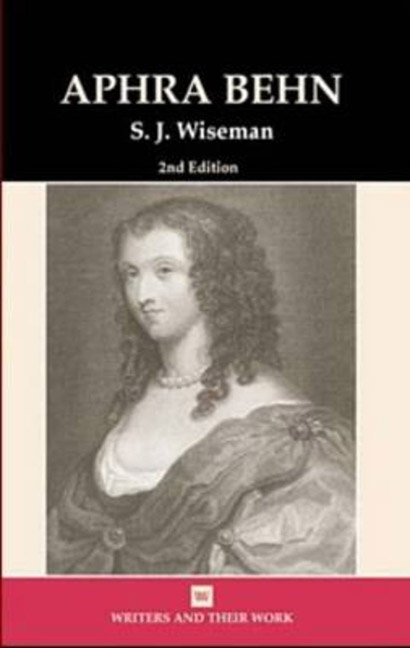4 - Fiction
Summary
SHORTER FICTION
'No more Truth than a Narrative’ says a character in The City Heiress in 1682 (Todd, vii, III. i. 164). This was the year in which the King's and Duke's theatres amalgamated, reducing opportunities for staging plays. The situation seems to have prompted Behn to turn her attention to print. At first she published poetry, turning to prose narrative towards the end of the 1680s. She published both very long texts, like the multi-volume Love Letters between a Nobleman and his Sister, and fictions of about the length of a twentieth-century short story, which appeared in collections. That such stories were popular is suggested by their sheer quantity, though here there is space to discuss only four.
In the second half of the seventeenth century a market for prose developed which was in many ways an extension of elements of bookselling already present. This market is often characterized by twentieth-century critics as signalling the beginning of the novel - the dominant genre in the eighteenth century. Certainly during the 1680s prose narrative was both saleable and suspect because of its ability simultaneously to mimic truth (a novelistic quality) and to offer romance plotting. The romance has a long history, but had most recently been used as a commentary of courts and politics which also offered layered stories of shepherds, disguise, kings, and princes, as in Lady Mary Wroth's Urania. Behn's shorter fiction, just like her very long Love Letters and the novella-length Oroonoko, appeared at this transitional moment when 'truth’ or ‘history’ and ‘invention’ or ‘romance’ existed together in fictions. It would, therefore, be misleading to approach her stories as we do twentieth-century short stories; bearing the legacy of romance, they work with the powerful popularity of scandal and travel narrative, and with an early modern sense of the possibilities open to the heroine.
In such fictions it is impossible to make a clear, formal demarcation between strategies typical of the long multi-layered stories known as romances or of novels. For example, Behn's stories 'The Unfortunate Happy Lady’ and The Fair Jilt combine techniques characteristic of both romance and novel - they take romance plots, shorten them, and situate them in an economically and morally indeterminate novelistic world of materiality, exigency, and caprice.
- Type
- Chapter
- Information
- Aphra Behn , pp. 62 - 101Publisher: Liverpool University PressPrint publication year: 2006



